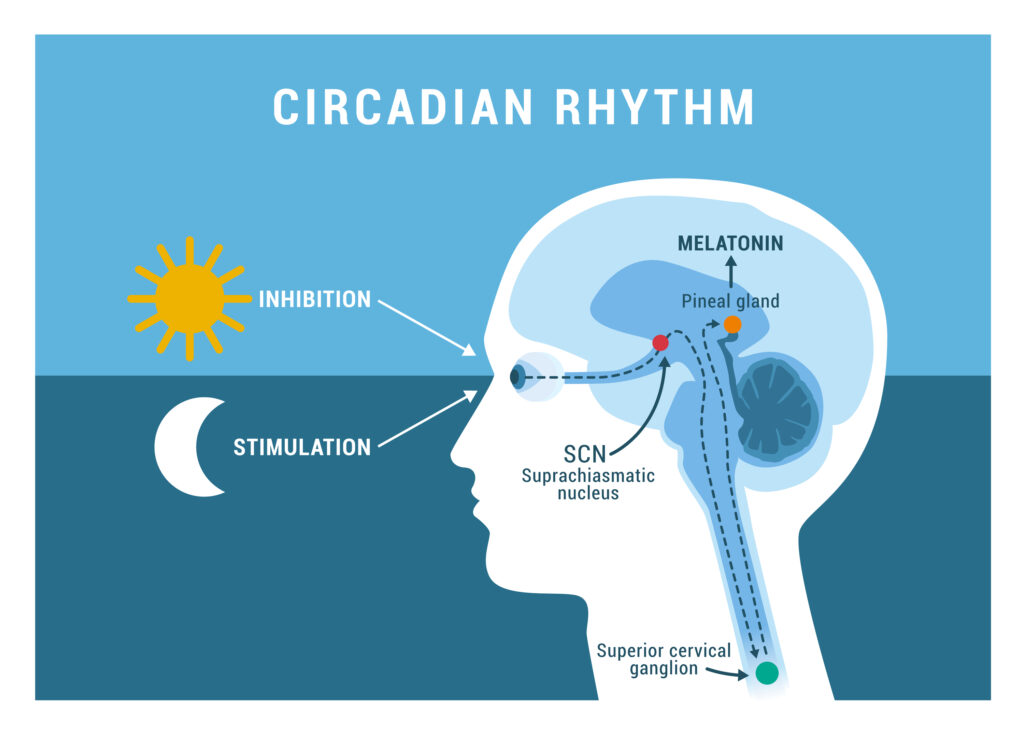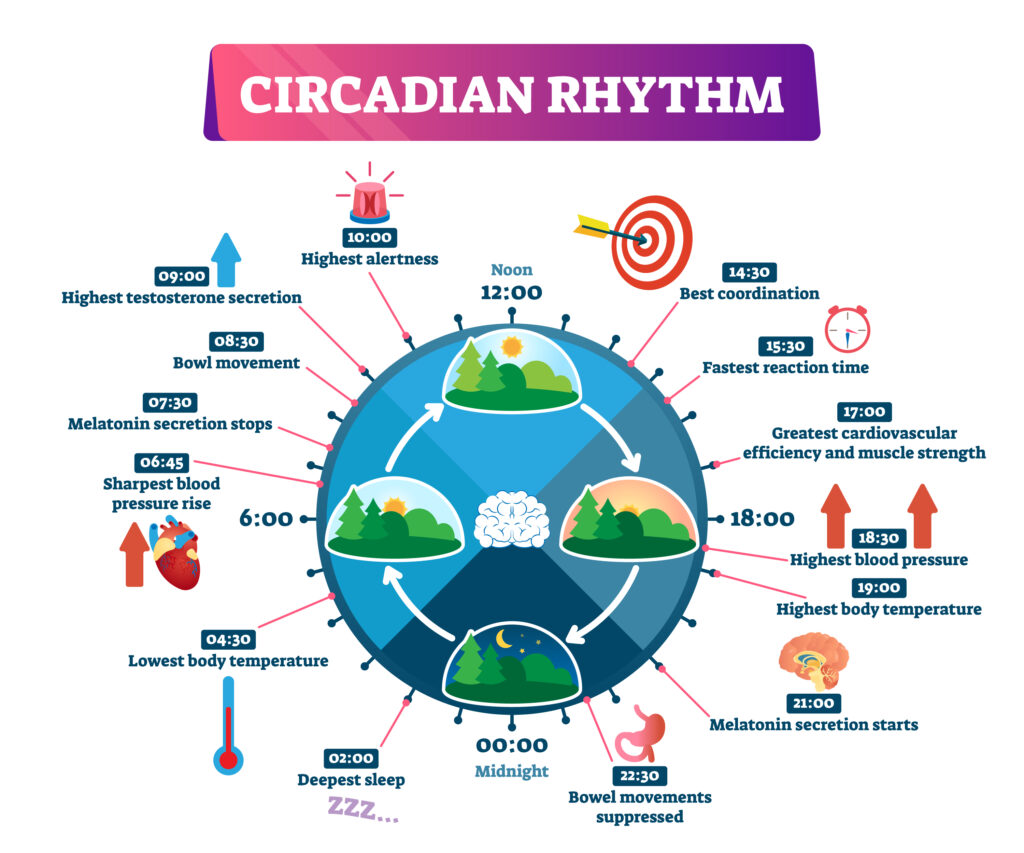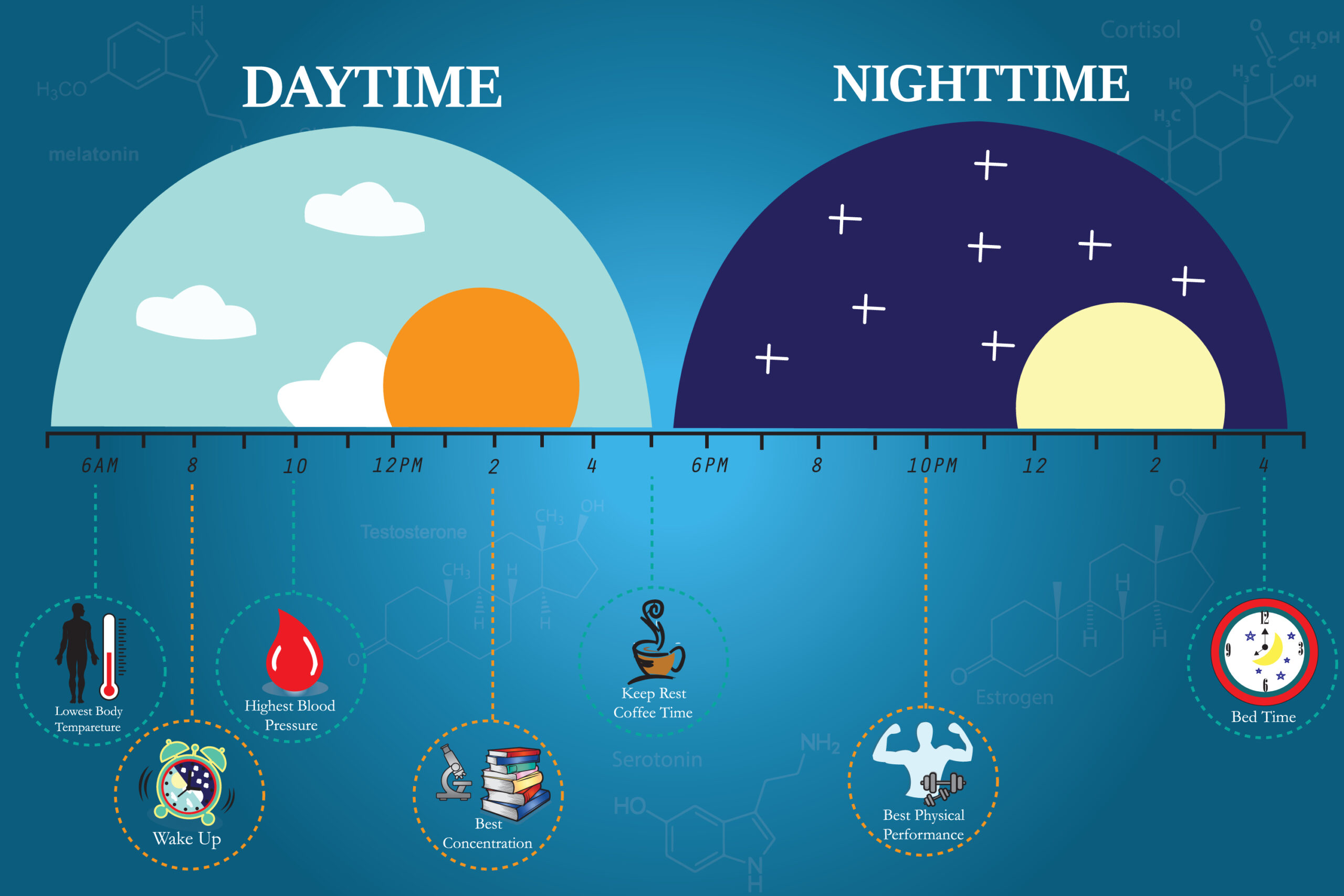Circadian rhythms “body’s clock” are the natural cycles of physical, mental, and behavioral changes that the body goes through in a 24-hour cycle. Almost all living organisms have circadian rhythms — humans, animals, plants, microbes, and more (with a few exceptions). Abnormal circadian rhythms may be linked to obesity, diabetes, depression, bipolar disorder, seasonal affective disorder, and sleep disorders such as insomnia.
The term circadian comes from Latin words that mean “around the day.” Patterns of brain waves, hormone production, cell regrowth, and other activities are linked to this cycle. Everyday functions – such as sleepiness, wakefulness, hunger, and many hormones function are based on a circadian rhythm. Located in the suprachiasmatic nucleus (SCN) of the brain’s hypothalamus, the master clock receives light signals from the eye’s retina, and it sends that information to various parts of the brain, including the pineal gland that releases melatonin. Melatonin is a hormone that makes you sleepy, and your body releases more of it at night and suppresses it during the day. The opposite occurs during the daytime because light signals suppress melatonin production and cortisol increase as part of your circadian rhythm. Cortisol makes you more alert, and your body produces more of it in the morning.
People with circadian rhythm disorders may have problems:

- Falling asleep
- Staying asleep
- Waking up too early and not being able to go back to sleep
- Getting sleep but not feeling refreshed by it
- Weight gain
- Excessive appetite
- Mood swings
- Hormonal disbalance
- Premature ageing
- Depression
- Lack of motivation
- Body temperature disturbance
- Digestive issues
How can I improve my circadian rhythm?

- Enhance natural light exposure. All you need is about twenty minutes of natural light to get into your retina, and the right hormones would be activated. Of course, this means don’t wear sunglasses for this period of time.
- Practice good sleep hygiene. Blue light from electronic devices at night confuses our biological clocks by suppressing the secretion of melatonin. Most of us cannot resist our electronic devices in the evenings. Fortunately, thanks to technology, we now can use blue light blocking glasses. Such glasses help reduce exposure to blue light waves that can keep you awake. Of course, the ideal would be not to expose your eyes to direct light two hours before bed.
- Eat at set times. Eating at more or less the same time every day will give regularity to your biological clock.
- Manage stress. Easier said than done. However, it would be best if you established your own healthy habits to keep stress at bay.
- Exercise. Exercise is a strong entrainment signal for the mammalian circadian clock and has a significant circadian phase-shifting effect.
- Get outdoors. Time spent outdoors lowers stress levels and triggers your body to make more vitamin D. A healthy body is a body that functions more efficiently, which translates into better sleep.
It is common to feel energy dips throughout the day, but it seems many adults feel most fatigued in the afternoons. These dips are based on each person’s habits and age. Managing your circadian rhythm will give you more energy throughout the day, prevent premature ageing, ensure better and deeper sleep, improve your mood, and balance your hormones.
